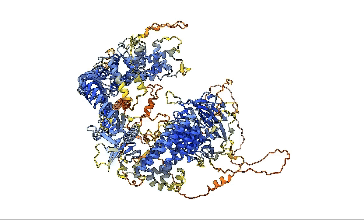IAHSP Consortium
 |
Infantile-onset ascending hereditary spastic paralysis (IAHSP) is a rare, inherited neurodegenerative disorder that typically begins in infancy. The condition is characterized by progressive weakness and stiffness (spasticity) of the muscles, which first affects the legs and then spreads upward (ascending) to other muscles, including those of the arms and torso.
The primary features of IAHSP include (https://omim.org/entry/607225):
- Spasticity: An abnormal increase in muscle tone or stiffness, making movements difficult.
- Muscle weakness: Progressive weakness, starting in the lower limbs and ascending to upper parts of the body.
- Loss of motor function: Difficulty with walking, standing, and eventually other basic movements.
IAHSP is caused by mutations in certain genes, notably the ALS2 gene, which is also linked to other motor neuron diseases. The condition affects the neurons responsible for muscle control, leading to degeneration over time.
The disorder is hereditary, as to say that it is genetically transmitted. The transmission pattern is autosomal recessive, meaning that each one of the patient's parents carry one copy of the mutated gene, despite showing no symptoms (healthy carriers).
Publications
Useful links
Patient associations
- Help Olly. Olivia's story. Olivia is a young girl suffering from IAHSP
Other organisations
Italy
- Department of Developmental Neuroscience, IRCCS Stella Maris, Calambrone (Pisa)
- Department of Life Sciences at University of Trieste
- Department of Medical Sciences at University of Turin
- Department of Molecular Biotechnology and Health Sciences at University of Turin
- Department of Neurosciences "Rita Levi Montalcini" at University of Turin
- IRCCS Istituto Auxologico Italiano, Milan
Belgium
Japan
